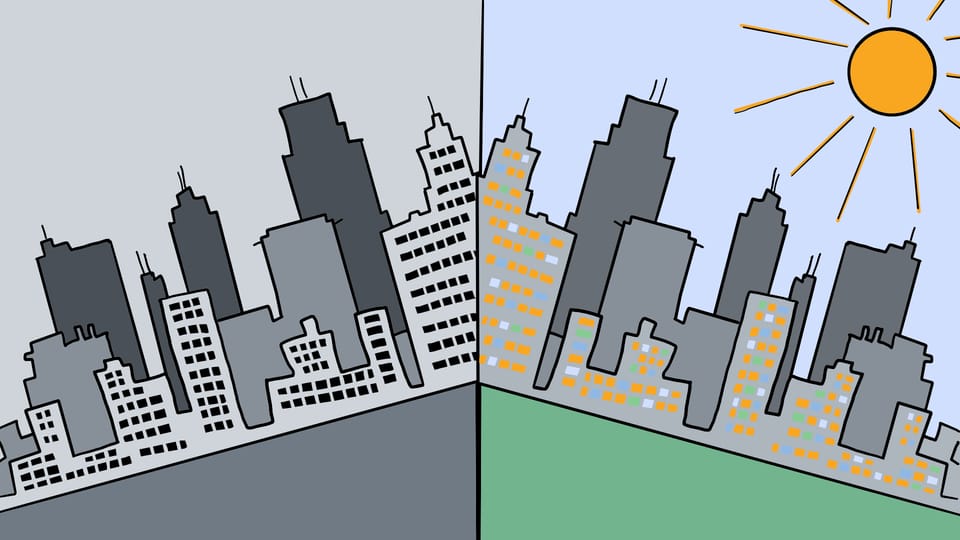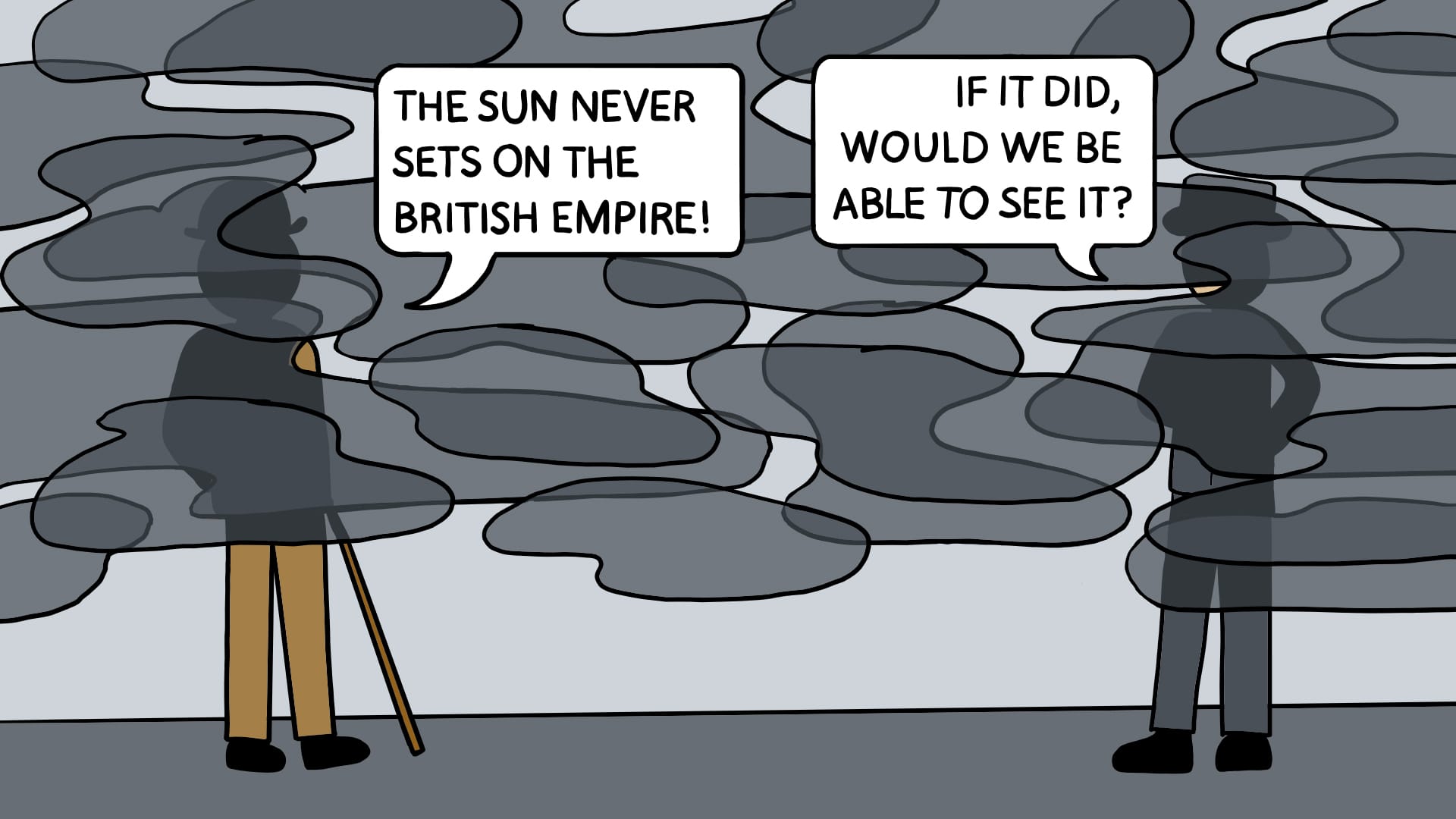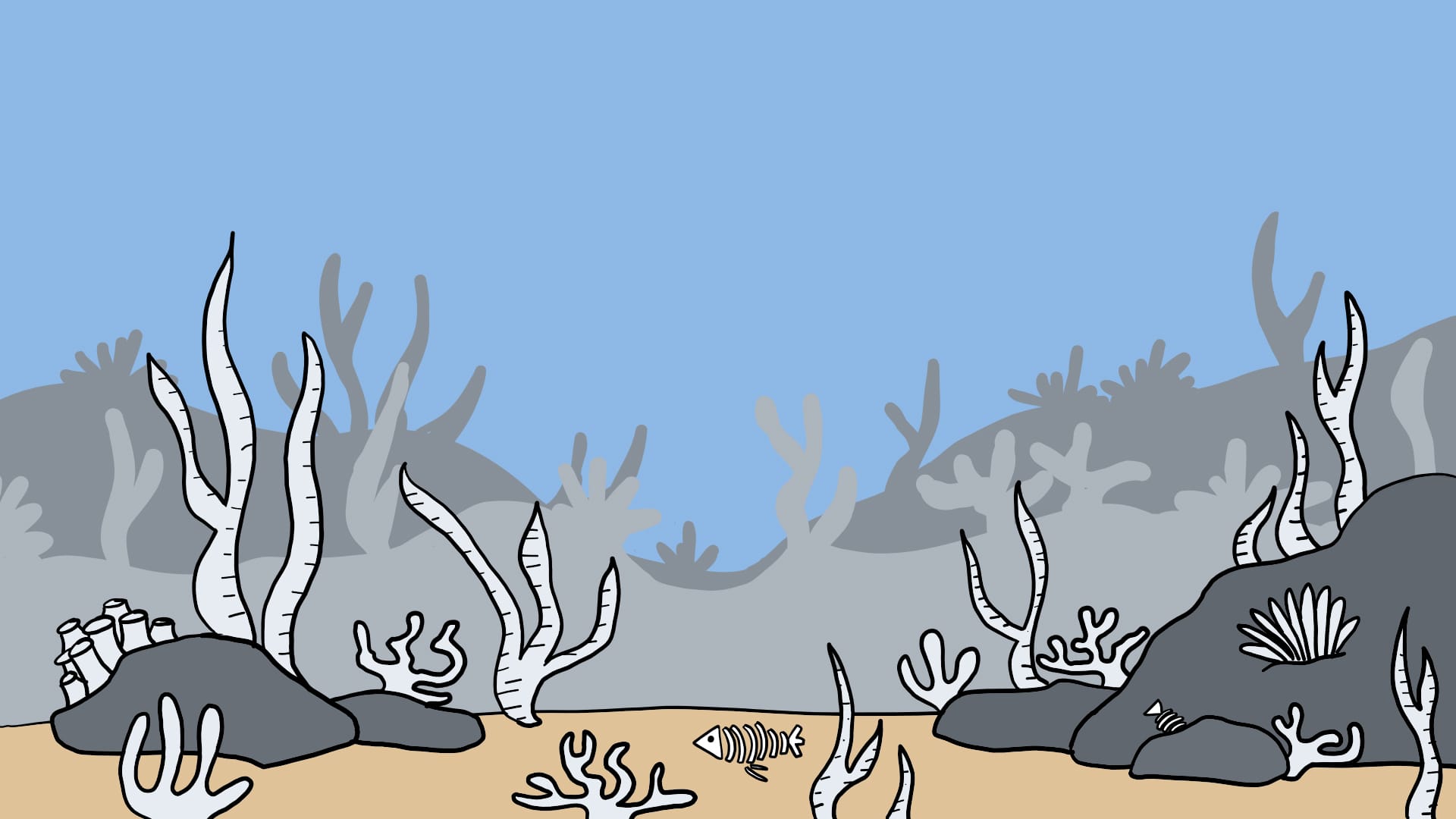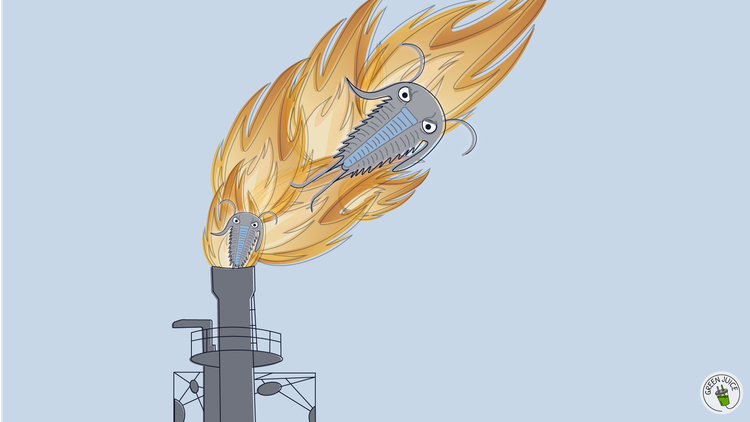A tale of two tipping points

The opening line to Charles Dickens' A Tale of Two Cities is rarely recited in its entirety:
It was the best of times, it was the worst of times, it was the age of wisdom, it was the age of foolishness, it was the epoch of belief, it was the epoch of incredulity, it was the season of Light, it was the season of Darkness, it was the spring of hope, it was the winter of despair, we had everything before us, we had nothing before us, we were all going direct to Heaven, we were all going direct the other way—in short, the period was so far like the present period, that some of its noisiest authorities insisted on its being received, for good or for evil, in the superlative degree of comparison only.
Dickens wrote that very long sentence in 1859 at the tail end of the Industrial Revolution. By then, London was already burning 3.5 million tons of coal annually. By 1880, that number would grow to 10 billion tons. The famous "pea soup" fog that veiled the cityscape was in fact pure smog pollution, a toxic blend of coal smoke, soot, and chemical emissions.

Still, Londoners found reasons for optimism. It was the best of times, after all! Railways and steam engines proliferated, the middle class was growing in size and wealth, literacy rates were on the rise. The British Empire was in full swing, baby, and its future was bright—even if you couldn't see more than a few feet in front of your face.
In today's post, we dig into two big climate news stories. One is good and inspiring, the other is bleak and depressing. Both are being called "tipping points", meaning the trends they augur are likely to accelerate going forward.
If you were to ask the AI-synthesized corpus of Charles Dickens, it would probably say that we shouldn't speak in the superlative degree of comparison only. Meaning, our modern epoch is probably not the best things will ever be nor the worst they have ever been. Reality has always existed somewhere in the middle.
But Charles Dickens didn't know shit about climate change.
Let's start with the good one.
Best of times: Renewables are now the primary source of electricity on Earth
For the first time ever, renewable energy has overtaken coal as the largest source of electricity generation in the world. And there may be no turning back.
Even as humanity's appetite for energy continues to increase, so far in 2025, "growth in solar and wind has been so strong that it met 100% of the extra electricity demand, even helping drive a slight decline in coal and gas use."
That's pretty wicked.
Context
- Thanks, China! We wouldn't be here if not for you. China has added more solar and wind capacity than the rest of the world combined, including nearly three-quarters of all the utility-scale renewable energy projects being built right now. China has a pipeline of over 1.3 terawatts (1,300 gigawatts) of renewables.
- China isn't just building out its own renewable energy ecosystem: they're selling clean energy technology to the world. This August, China's clean tech exports hit a record $20 billion.
- The result of all those exports? Solar power is growing like kudzu in lower-income countries. Pakistan imported an astonishing 17 gigawatts of solar last year—the equivalent of one-third of their total electricity generation capacity. In Africa, solar imports are up 60% year-over-year, with some countries, like Algeria, going absolutely ballistic: Algeria's imports increased 33x in just one year.
Takeaways
- The lower-income countries importing solar panels en masse aren't doing so to fortify existing fossil fuel-based energy systems. These countries are bypassing fossil fuels altogether.

- This spells big trouble for the old U.S.A. economy. We remain stubbornly, psychotically convinced that the world is gonna pony up for our Liquified Natural Gas (LNG), fracked right here in America.
- But in just a few years, much of the world will be powered nearly in full by free energy from the sun and wind. These countries will have zero incentive to build out the costly pipeline infrastructure necessary to import LNG. And why should they? They won't need it! America's taloned grip on the globe continues to weaken. Under the Trump administration, we are doing nothing to change that outcome.
On that cheery note, let's take a look at our next tipping point.
Worst of times: Coral reefs are in a lot of trouble
Friends, there's no easy way to say this... so I'll let someone else say it for me.
The BBC: Planet’s first catastrophic climate tipping point reached, report says, with coral reefs facing ‘widespread dieback’
Subhead: Unless global heating is reduced to 1.2C ‘as fast as possible’, warm water coral reefs will not remain ‘at any meaningful scale’, a report by 160 scientists from 23 countries warns
For good measure, they add: The report from scientists and conservationists warns the world is also “on the brink” of reaching other tipping points, including the dieback of the Amazon, the collapse of major ocean currents and the loss of ice sheets.

Context
- "Coral reefs are known as the rainforests of the sea because of their high concentration of biodiversity that supports about a third of all marine species and a billion people."
- 84% of coral reefs are currently exposed to bleaching-level heat
- Australia’s Great Barrier Reef declared its sixth widespread bleaching event in just nine years
- This is a direct result of manmade climate change. Our oceans absorb about 90% of the excess heat and energy released from rising greenhouse gas emissions trapped in the Earth’s atmosphere.
Is there any good news?
Maaaybe?
- Some experts believe coral reef systems may be able to adapt to higher temperatures. Life finds a way.
- The National Oceanic and Atmospheric Administration (NOAA) is trying their best. Their Coral Reef Conservation Program grows coral from rescued fragments in nurseries and then "out-plants" the adults in degraded reefs. Unfortunately, planting healthy coral in an environment that kills coral doesn't seem to be working great.
- The Great Barrier Reef Foundation is attempting coral cryopreservation: freezing coral tissue, sperm, and eggs in liquid nitrogen for safe-keeping. Once we crack this whole climate change thing, we can reseed our oceans, easy peasy.
Takeaways
- Fucking woof.
- Climate change is not something for future generations to grapple with. It is here right now.
- We must remain committed to this fight.
Here at Green Juice, we try not to focus too much on the cataloguing of bad news. Plenty of other outlets do that, climate change is literally not your fault, and feeling shitty about it doesn't drive the collective action we desperately need to fix this mess.
But this one really got to me. I just can't understand how it's already disappeared from the news cycle, where it hardly made a dent in the first place. Stories like this make me feel insane and alone. Insanely alone, you might say.
Maybe you feel that way, too. So I just want to say: you and I are not alone. The media wrongly believes we don't want to hear these stories, but that doesn't mean no one cares. These stories are deeply felt. The loss of life is mourned. The destruction will be remembered.
Let's end this on a positive note.
On Monday, BloombergNEF solar analyst Jenny Chase posted her annual jumbo thread on the state of solar power around the world. Deep within the thread, I saw this stat:
38. Ordinary people have no idea how much progress we’ve made. Tell people at parties that UK carbon emissions in 2023 were at their lowest level since 1879, for example. Most developed economies are now reducing carbon emissions without lowering quality of life.
— Jenny Chase (@solarchase.bsky.social) 2025-10-20T07:56:23.324Z
Something for AI Dickens to chew on.

Member discussion